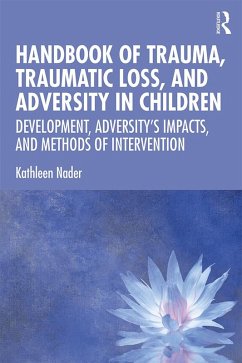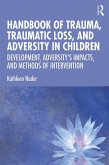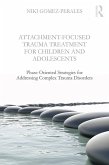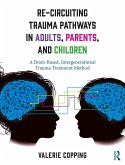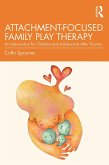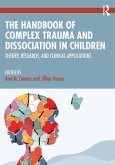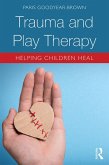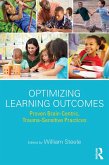Aspects of attachment and parenting and the use of interrelationships toward therapeutic ends are included in each age-related section of the book, ranging from 0 to 18+. Consolidating research from a range of disciplines including neurobiology, psychopathology, and trauma studies, chapters offer guidance on the potentially cascading effects of trauma, and outline strategies for assisting parents and teachers as well as children. Readers will also find appendices with further resources for download on the book's website.
Grounded in interdisciplinary research, the Handbook of Trauma, Traumatic Loss, and Adversity in Children is an important resource for mental health researchers and professionals working with children, adolescents, and families during the ongoing process of healing from traumatic exposure.
Dieser Download kann aus rechtlichen Gründen nur mit Rechnungsadresse in A, B, BG, CY, CZ, D, DK, EW, E, FIN, F, GR, HR, H, IRL, I, LT, L, LR, M, NL, PL, P, R, S, SLO, SK ausgeliefert werden.
"In this handbook Dr. Nader brilliantly details the developmental impact of trauma during childhood. The structure of the book provides an easy way to learn how trauma affects child development and the potential long-term impact of trauma. The healing role of parents and teachers as well as the resilience of children is highlighted, and the often cascading adversities after trauma are discussed. Having treatment methods for each developmental period offers great hope for helping children who have experienced traumatic events."-Alison Salloum, PhD, LCSW, professor, School of Social Work, University of South Florida
"This comprehensive volume brings a welcome developmental approach to understanding trauma in children-from its far-reaching effects to individualized treatment. This is essential reading for practitioners and policy makers concerned about the effects of early adverse experiences on children."-Charles H. Zeanah, MD, Mary Peters Sellars Polchow Chair in Psychiatry, professor of psychiatry and pediatrics, and vice chair for child and adolescent psychiatry at the Tulane University Institute of Infant and Early Childhood Mental Health
"As an adoptive parent as well as a certified babysitter for foster children, I found the information Dr. Nader shares about the factors contributing to childhood trauma and approaches that may best serve these children to be insightful. The breadth of research that Dr. Nader covers over a broad range of ages and trauma conditions is truly staggering. This body of work will prove valuable for those working with children suffering from trauma."-Fiona McInally, transactional attorney

